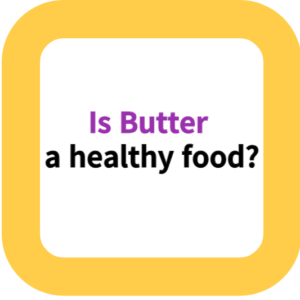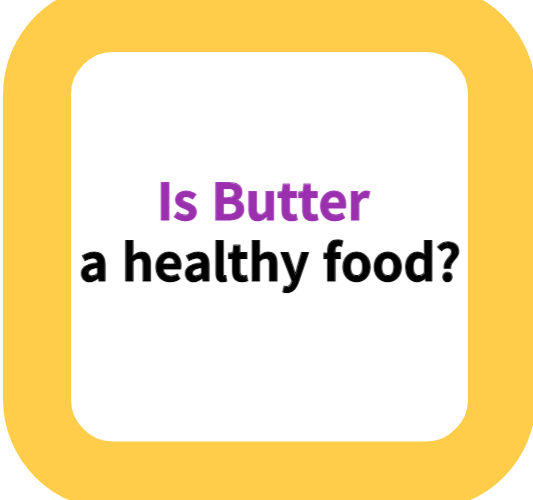Is Butter a healthy food?
Butter, a common ingredient in various cuisines, has been a subject of continuous debate in nutrition circles. Its impact on health has often been contested, leading to a need for a comprehensive look at its nutritional profile, health benefits, and potential drawbacks. This extended analysis aims to shed light on whether butter should be a part of a balanced diet, considering various health perspectives.
Is Butter a healthy food?

Detailed Nutritional Profile of Butter
Positive Aspects: Butter is an excellent source of essential saturated fats, vital for hormonal balance and optimal brain function. It also offers a rich supply of fat-soluble vitamins like A, D, E, and K, which are crucial for various bodily functions.
Negative Aspects: The high caloric and saturated fat content of butter poses a risk when consumed in large quantities, potentially leading to heart-related health issues.
Comprehensive Health Benefits of Butter
Vitamins and Nutrient Content: Butter is packed with vitamins that are key for maintaining skin health, bolstering the immune system, and supporting bone density.
Culinary Benefits: Beyond nutrition, butter is celebrated for its ability to enhance the flavor of dishes, contributing to culinary satisfaction and meal enjoyment.

Moderation and Responsible Consumption
Calorie Considerations: Given its high caloric density, consuming butter in moderation is crucial to maintain a balanced diet.
Saturated Fat and Cholesterol: While necessary in small amounts, excessive intake of saturated fats found in butter can increase cholesterol levels, posing a risk to heart health.
Exploring Alternatives and Adaptations
Clarified Butter (Ghee): As a lactose-reduced variant of butter, ghee is a suitable option for those with lactose intolerance, offering similar flavors with fewer digestive concerns.
Plant-Based Substitutes: For those seeking to reduce butter intake, alternatives like olive oil, avocado, and various nut butters provide healthier fats without sacrificing taste.
Individual Dietary Considerations
Managing Cholesterol Levels: Individuals with high cholesterol or heart disease risk should carefully monitor their butter consumption.
Addressing Lactose Intolerance: Lactose-intolerant individuals might find ghee or plant-based fats to be viable alternatives to traditional butter.
Conclusion: Balancing Butter in Your Diet
In conclusion, butter can be part of a healthy diet when consumed in moderation and balanced with other nutritional needs. Its rich flavor and nutrient content make it a valuable culinary ingredient. However, individual health factors like cholesterol levels and lactose intolerance should guide its consumption.
Consulting with health professionals for personalized dietary advice is always beneficial. Ultimately, the key lies in understanding butter’s role in a diverse and balanced diet, emphasizing informed choices and moderation.
쿠팡파트너스 활동을 통해 일정액의 수수료를 제공받을 수 있습니다.
